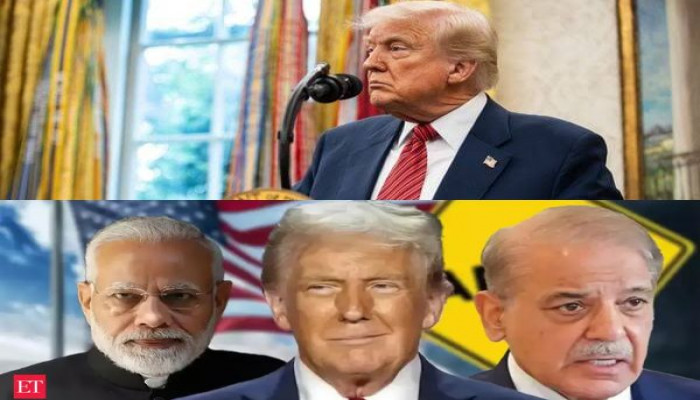Team Trump uses India-Pak ceasefire to justify tariffs, court rejects defence
- In Reports
- 05:56 PM, May 29, 2025
- Myind Staff
In spite of the US government’s claim that fresh tariffs were necessary to support the 10 May ceasefire between India and Pakistan, a federal trade court blocked President Donald Trump from imposing those tariffs. The court ruled that he exceeded the legal authority granted to him.
The government told the court that the ceasefire “was achieved only after both countries were offered trading access with the US to avert a full scale war.” But the court rejected this argument.
The dispute began with tariffs that Donald Trump announced on 2 April. He proposed a 10% tax on most imports and even higher duties on goods from China and the European Union. He called the plan “Liberation Day” and later paused some of the steeper tariffs while working on trade agreements.
A three judge panel of the New York based Court of International Trade ruled on Wednesday, “The court does not pass upon the wisdom or likely effectiveness of the President's use of tariffs as leverage.”
In a court filing on 23 May, US Secretary of Commerce Howard W Lutnick defended Trump’s use of emergency powers to impose steep tariffs. He called the measure a vital tool of foreign policy.
The argument responded to a lawsuit brought by attorneys general from 12 Democrat led states. They argued that Trump’s invocation of the International Emergency Economic Powers Act (IEEPA) to impose tariffs including a 26% duty on Indian imports was “unlawful and arbitrary.”
Lutnick warned that limiting the president’s authority under IEEPA would cause ripple effects across every domain where economic tools serve strategic purposes.
He offered an example. He said, “India and Pakistan, two nuclear powers engaged in combat operations just 13 days ago, reached a tenuous ceasefire on 10 May 2025. This ceasefire was only achieved after President Trump interceded and offered both nations trading access with the United States to avert a full scale war.”
Lutnick also cautioned that a ruling restricting presidential power in this case could lead India and Pakistan to question the validity of Trump’s offer. He warned this could threaten regional security and the lives of millions.
He added that the tariff strategy successfully pushed China to the negotiating table. He claimed the tariffs compelled Beijing which the US accused of fuelling drug inflows and draining American manufacturing jobs “to the negotiating table.”
India strongly rejected the US claim about its role in the ceasefire. Indian officials denied that Trump or his administration helped broker the 10 May ceasefire, which came after four days of cross border military action.
They stated that military leaders from both countries achieved the ceasefire through direct talks.
The conflict began on 7 May. India launched strikes on nine terror bases in Pakistan and Pakistan occupied Kashmir under Operation Sindoor. The strikes followed the Pahalgam terror attack that killed 26 people.







Comments